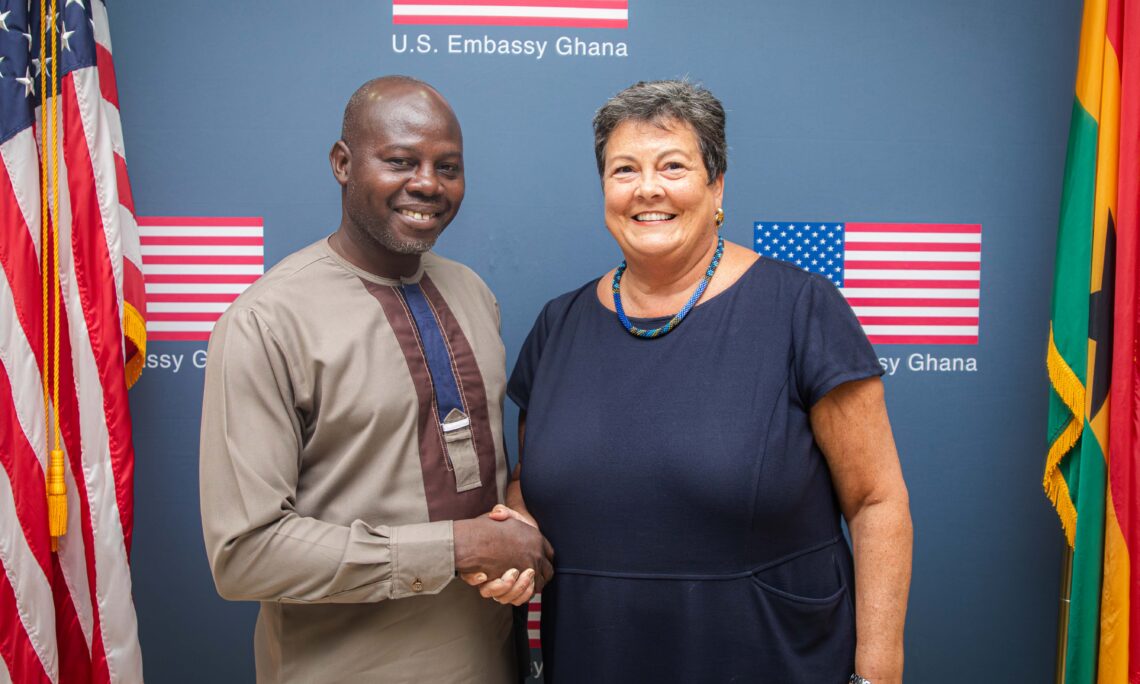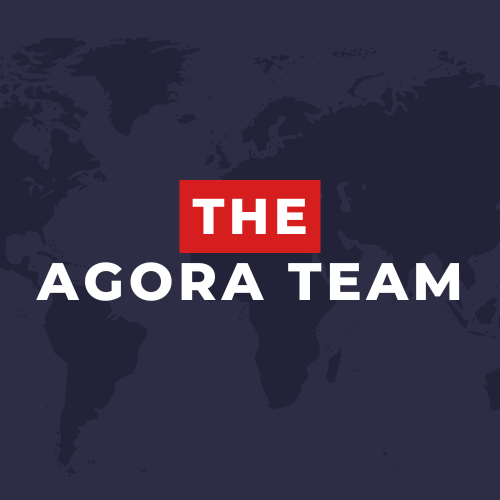U.S. Honors Dintie Tayiru Sule with Global Anti-Racism Award

Accra, GHANA – Dintie Tayiru Sule, Executive Director of Sustainable Aid through Voluntary Establishment (SAVE)-Ghana, has been recognized by the United States Government as one of the recipients of the prestigious 2024 Secretary of State’s Award for Global Anti-Racism Champions (GARC). Sule, the only African awardee, is one of six honorees globally celebrated for their exceptional leadership, bravery, and commitment to advancing racial equity, justice, and human rights.
Before traveling to Washington, DC to receive the award, Sule met with U.S. Ambassador Palmer, who commended the impactful work of Sule and SAVE-Ghana, particularly their efforts within the Fulbe community. The Fulbe, a minority group primarily consisting of cattle herders in Ghana’s Upper West Region, have benefited from Sule’s advocacy for racial justice and social inclusion.
In Washington, DC, at the award ceremony held on October 21 at the U.S. Department of State, Sule expressed his deep commitment to advocating for minority rights, saying, “My motivation to advocate for minority groups stems from a combination of my personal experiences, a strong sense of justice, and a desire to create positive change. I deeply hope that my efforts continue to contribute to a future where no minority group endures stigma or is denied their basic rights.”
Sule’s work has gained significant international support, particularly from the U.S. Agency for International Development (USAID). Since 2021, through its Office for Transition Initiatives (OTI) Littorals Regional Initiative (LRI), USAID has collaborated with SAVE-Ghana to foster inclusivity in local governance and society in the Upper West Region. Sule’s organization has facilitated dialogue between the Fulbe and local authorities, helping to resolve issues related to taxation and improve relations with other communities.
About SAVE-Ghana
Based in Tumu, Upper West Region, SAVE-Ghana is a non-profit organization dedicated to safeguarding the rights of marginalized groups, alleviating poverty, and promoting sustainable livelihoods. The organization’s work focuses on rural communities, with special attention to the Fulbe minority, women, and children.
About USAID’s Littorals Regional Initiative (LRI)
The LRI program addresses local conflicts, ethno-religious marginalization, and weak social cohesion in West African coastal states. By strengthening communities’ resilience to violent extremism, it complements broader USAID efforts aimed at preventing the spread of extremist ideologies in the region.



